Pengfei Liu

- Atmospheric chemistry & aerosols
- Aerosol-climate interactions
- Laboratory studies of organic particulate matter
- Biomass burning across multiple timescales
- Ecosystem and Environmental Health

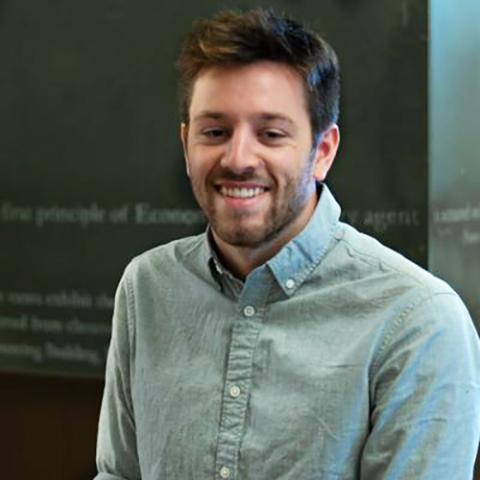
Anthony Harding is an environmental economist with research interests at the intersection of innovative technologies and climate policy. He uses economic theory and applied econometrics to analyze the extent of socioeconomic risks from climate change, how policy and technologies can moderate these risks, and what impacts, intended or otherwise, policies may have. Before returning to Georgia Tech, Harding was a postdoctoral fellow at Harvard University’s Kennedy School of Government. He earned his Ph.D. in Economics from the School of Economics and a B.S. in Mathematics and Physics from Rensselaer Polytechnic Institute.
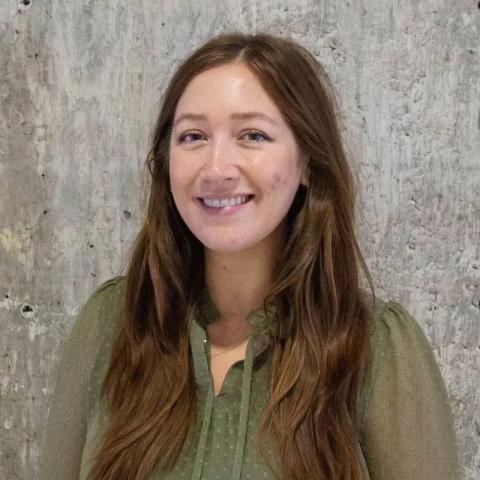
Dr. Graham joined Georgia Tech as an Assistant Professor in January 2023. She completed a President’s Postdoctoral Fellowship at Georgia Tech, and completed her MS and PhD in Environmental Engineering and Science at Stanford University. Prior to that, she received her undergraduate degree at the University of Michigan in Chemical Engineering.
Dr. Graham’s research interests focus on the fate and transport of pathogens and antimicrobial resistance genes in the built and natural environments. Her previous research projects have focused on wastewater-based epidemiology, quantitative microbial risk assessment (QMRA), and the removal of pathogens in green stormwater infrastructure. Her lab aims to use molecular biology, microbiology, and modeling tools to address issues of water, climate, and health domestically and internationally.
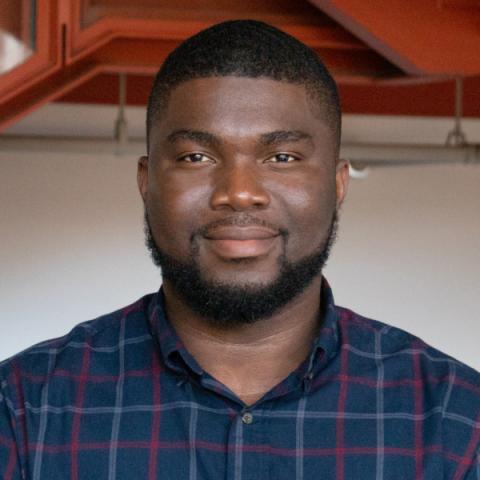
Fanijo’s research centres around sustainable and smart-resilient buildings/civil infrastructure with a particular interest in decarbonizing infrastructure using novel low-carbon construction materials and alternative energy sources. Buildings contribute to more than one-third (39%) of the global energy-related CO2 emissions and 35% of global energy consumption, mainly from manufacturing, building materials and transportation. As such, advanced research on developing innovative construction materials is urgently required to address the carbon emissions from materials and construction processes of buildings' life cycle. His research approach includes examining the fresh properties and rheology, early-age cracking, microstructure evaluation, mechanical and durability performance, and life cycle assessment of building systems (particularly cementitious composites) made with these sustainable construction materials.
He has also conducted research across different disciplines, including cementitious and concrete composites; corrosion monitoring and mitigation; concrete durability; green concrete technology using recycled and by-product materials; 3D printing of cementitious materials; highway pavement; geopolymers; fibre-reinforced concrete; advanced sensing technologies and automation; and non-destructive structural monitoring and evaluation.
Fanijo received his B.S. in Building Construction with first-class honours from the Obafemi Awolowo University, Nigeria. In 2019, He earned an M.S. in Civil Engineering from the University of Idaho. Subsequently, he got his PhD in Civil Engineering (with a simultaneous Master’s degree – MEng in Material Science and Engineering) from Virginia Tech in 2022. He has worked on numerous funded research projects and published in various peer-reviewed journals and proceedings. Fanijo has also received numerous national and international awards for his excellence in research, with his recent NSBE Golden Torch Award recognized as the graduate student of the year 2022.
At Georgia Tech, he is passionate about teaching construction materials and methods and their critical role in the design and construction of buildings. Fanijo developed and currently teaching the Construction Materials and Methods Course so that Building Construction students can have in-depth knowledge of building materials and systems, their properties, and their intrinsic relationship to structural systems and environmental performance. He also develops and teaches courses on Green Construction Technology, Concrete Durability and Sustainable Construction Materials and Techniques.
Fanijo is a Professional Engineer (P.E.) and LEED Green Associate with more than five years of working experience in the construction sector.
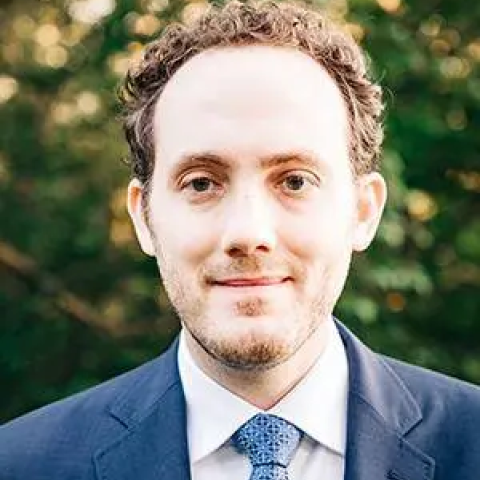
Dr. Micah S. Ziegler is an assistant professor in the School of Chemical and Biomolecular Engineering and the School of Public Policy.
Dr. Ziegler evaluates sustainable energy and chemical technologies, their impact, and their potential. His research helps to shape robust strategies to accelerate the improvement and deployment of technologies that can enable a global transition to sustainable and equitable energy systems. His approach relies on collecting and curating large empirical datasets from multiple sources and building data-informed models. His work informs research and development, public policy, and financial investment.
Dr. Ziegler conducted postdoctoral research at the Institute for Data, Systems, and Society at the Massachusetts Institute of Technology. At MIT, he evaluated established and emerging energy technologies, particularly energy storage. To determine how to accelerate the improvement of energy storage technologies, he examined how rapidly and why they have changed over time. He also studied how energy storage could be used to integrate solar and wind resources into a reliable energy system.
Dr. Ziegler earned a Ph.D. in Chemistry from the University of California, Berkeley and a B.S. in Chemistry, summa cum laude, from Yale University. In graduate school, he primarily investigated dicopper complexes in order to facilitate the use of earth-abundant, first-row transition metals in small molecule transformations and catalysis. Before graduate school, he worked in the Climate and Energy Program at the World Resources Institute (WRI). At WRI, he explored how to improve mutual trust and confidence among parties developing international climate change policy and researched carbon dioxide capture and storage, electricity transmission, and international energy technology policy. Dr. Ziegler was also a Luce Scholar assigned to the Business Environment Council in Hong Kong, where he helped advise businesses on measuring and managing their environmental sustainability.
Dr. Ziegler is a member of AIChE and ACS, and serves on the steering committee of Macro-Energy Systems. His research findings have been highlighted in media, including The New York Times, Nature, The Economist, National Geographic, BBC Newshour, NPR’s Marketplace, and ABC News.
Complex SystemsEnergy and Sustainability
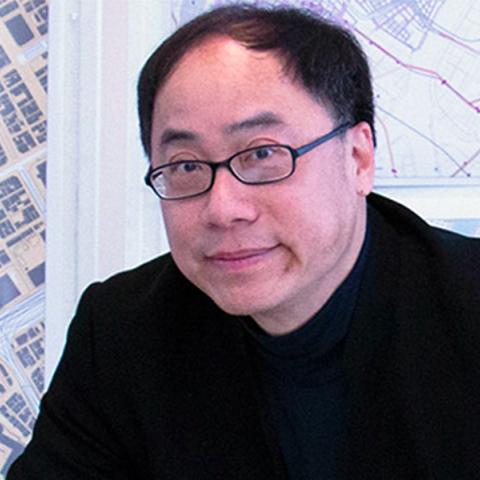
Perry Yang is a Professor and Director of Eco Urban Lab of the School of City and Regional Planning and the School of Architecture at the Georgia Institute of Technology. Perry’s work focuses on incorporating data analytics into urban design to improve ecological and energy performance of cities. He has published more than fifty articles and book chapters in this area from 2009, including the book Urban Systems Design: Creating Sustainable Smart Cities in the Internet of Things Era that he co-edited and co-authored six chapters in 2020 by Elsevier. He co-edited a 2019 theme issue Urban Systems Design: From Science for Design to Design in Science in Environment and Planning B: Urban Analytics and City Science, a prestigious journal in planning to explore new urban design research agenda and applications of emerging technologies, data analytics and urban automation to placemaking in the context of smart city movement. Beyond writing, Yang has been awarded more than ten prizes in international competitions continuously from 2005 in Asian cities, including the 2009 World Games Park at Kaohsiung, Taiwan, a project opened in July 2009 and featured by CNN as an “eco-friendly” venue. His urban design work was introduced in the January 2010 issue Ecological Urbanism at World Architecture (WA), a leading architecture journal by Tsinghua University. His recent design projects were shortlisted in the 2022 Asian Games Village in Hangzhou in 2017, the Musi River Revitalization at Hyderabad in 2018, and water town designs in China’s Yangtze River Delta region in 2020-2021 during the pandemic. From 2017 to 2023, he has been involved in smart city projects in Japan, including one of Tokyo’s 2020 Olympic sites at Urawa Misono, in collaboration with the University of Tokyo, Keio University and Global Carbon Project (GCP).
Yang is a Visiting Professor at the Department of Urban Engineering of the University of Tokyo from 2022 to 2023, and a Visiting Scientist at CARES of the Cambridge University in Singapore in 2023. He served as the endowed Bayer Chair Professor of UNEP Institute at Tongji University from 2014 to 2018. Perry is also a faculty fellow of the Brook Byers Institute for Sustainable Systems at Georgia Tech from 2018. He has served as a board member of the International Urban Planning and Environment Association (UPE) from 2007. He is a scientific committee member of International Conference on Applied Energy (ICAE) from 2015. Prior to joining the Georgia Tech faculty, he was a Fulbright Scholar and SPURS Fellow at MIT from 1999 to 2000, and an Assistant Professor of Architecture and Urban Design at the National University of Singapore from 2001 to 2008.
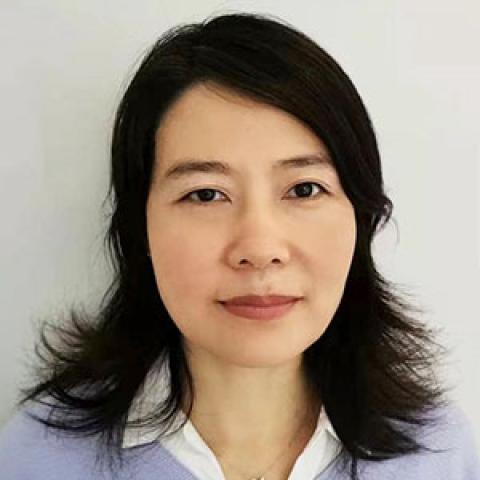
The Tong Lab tackles challenges in the interdisciplinary areas of bioresource engineering and sustainable chemistry. We develop innovative technologies for producing chemicals, materials, energy, and fuels from renewable resources.
Current research interests include:
Disciplines:
Materials and Nanotechnology
Energy and Sustainability
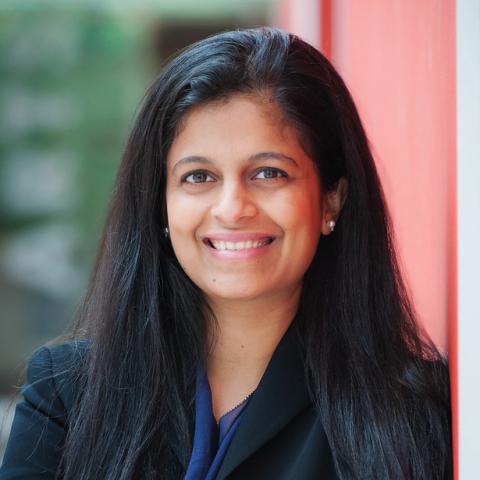
Anjali Thomas is an Associate Professor in the Sam Nunn School of International Affairs and Director of the Nunn School Program in Global Development. Her research focuses on the political economy of development, and employs quantitative analyses of data derived from India and other developing country contexts. Her specific substantive interests include the politics of service provision, democratic institutions and the link between climate change and local level politics. Prior to joining the faculty at Georgia Tech, Anjali was a faculty member in the Department of Political Science at the University of British Columbia in Vancouver. She obtained her Ph.D. from New York University in 2010.

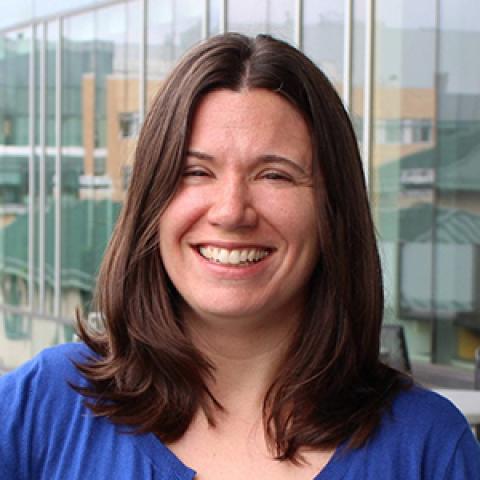
Jessica Roberts is an Assistant Professor in the School of Interactive Computing at GT with a PhD in the Learning Sciences, specializing in geospatial analysis and visualization in informal learning. As director of the Technology-Integrated Learning Environments (TILEs) Lab at Georgia Tech, her research explores technology-mediated social learning experiences in environments such as museums and citizen science. She is a former middle school teacher and a Brook Byers Institute for Sustainable Systems Faculty Fellow. Her work on the design of interactive learning technologies has been exhibited at venues such as the Field Museum of Natural History in Chicago and the New York Hall of Science. Prior to joining Georgia Tech, Dr. Roberts conducted postdoctoral research at the Human-Computer Interaction Institute at Carnegie Mellon University and the Tidal Lab at Northwestern University.
Learning Sciences, geospatial analysis, visualization , theater design, museum exhibit design, citizen science, interactive technologies, interactive learning technologies